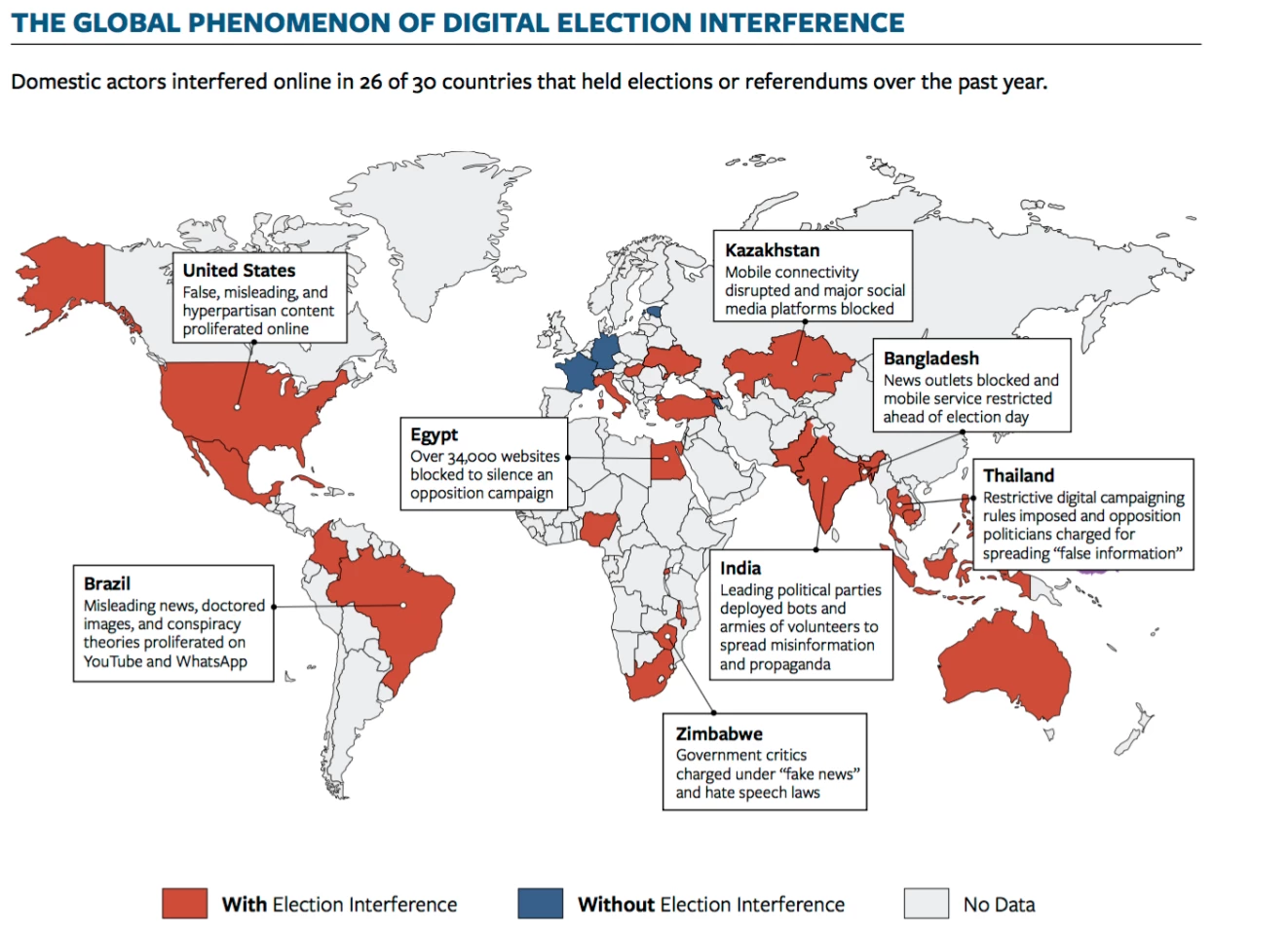An annual report tracking internet freedom across the world has found global declines for the ninth consecutive year. Underpinned by domestic election interference and social media surveillance, the report identified internet freedom deterioration in more than half of the 65 countries assessed.
Titled Freedom on the Net, this annual report is published by Freedom House, a non-governmental organization promoting democracy and civil rights. Freedom House is primarily US Government funded, however, since its founding in 1941, it has attempted to track the ebb and flow of global freedoms from an apolitical standpoint.
This internet freedom report has been published annually since 2009, and this report marks the 10th year of the survey. Initially only chronicling 15 countries, the report gradually increased its scope and since 2014 has analyzed internet freedom in 65 countries.
The report surveys internet freedom in countries from three perspectives: Obstacles to access – evaluating social and economic factors limiting internet access, as well as governmental efforts to block access; Limits on content – evaluating governmental control of content, from diversity of news media to specific content censorship; and Violations of user rights – measuring how many protections citizens have against surveillance, and what kinds of legal repercussions users can suffer from online activity.
Each country surveyed receives a score out of 100 based on evaluations of those three categories. For the ninth consecutive year a majority of countries surveyed demonstrated declines in internet freedom scores, with a striking 33 out of 65 countries displaying drops in overall scores.

Unsurprisingly, China recorded the lowest rate of internet freedom with a score of 10. Other low scoring countries rated "Not Free" included Iran (15), Vietnam (24), Egypt (26), Russia (31), and Turkey (37).
Brazil (64), Bangladesh (44), and Zimbabwe (42) all reported some of the biggest declines in internet freedom over the past year. Even the United States (77) saw a decline of one point, based on expanded law enforcement surveillance of social media platforms and electronic devices, and an exacerbation of disinformation spread by government officials. This is the third consecutive year the report calculated a decline in US internet freedom.
The two biggest global factors identified in the report as responsible for driving the majority of internet freedom declines have been an increase in social media surveillance, and election interference through digital media.
“Many governments are finding that on social media, propaganda works better than censorship,” says Mike Abramowitz, president of Freedom House. “Authoritarians and populists around the globe are exploiting both human nature and computer algorithms to conquer the ballot box, running roughshod over rules designed to ensure free and fair elections.”
The report disturbingly identified sophisticated social media surveillance programs in 40 of the 65 countries surveyed, and citizens were arrested for political, social, or religious speech posted online in 47 countries. Total internet shutdowns occurred at some point in 17 different countries over the past year, with the report noting these shut-downs primarily took place either during elections or times of civil protest.

Social media surveillance is perhaps the biggest focus of the 2019 internet freedom report. From helping disseminate government propaganda and spread misinformation, to offering repressive governments incredibly sophisticated tools to surveil undesirable expression, Freedom House explicitly says, “the future of internet freedom rests on our ability to fix social media.”
“Since these are mainly American platforms, the United States must be a leader in promoting transparency and accountability in the digital age,” suggests Adrian Shahbaz, Freedom House’s research director for technology and democracy. “This is the only way to stop the internet from becoming a Trojan horse for tyranny and oppression.”
Source: Freedom on the Net






